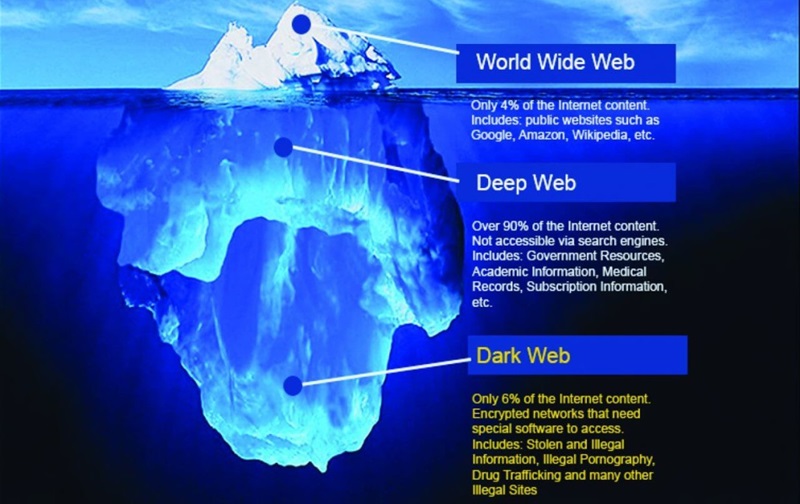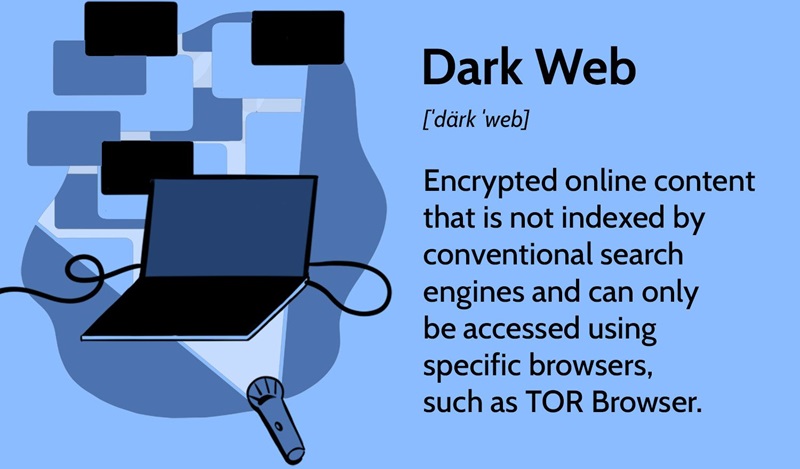In the shadowy labyrinth of the Dark Web, a cynical vigilante emerges, spending his days and nights navigating through the murky waters of this unseen world. This individual, known only by his online alias, thrives in the obscurity offered by the encrypted recesses of the internet, executing a solitary crusade against the vilest of cyber activities. His life is a paradox; he’s a guardian yet an outcast, a pariah yet a protector, his actions always teetering on the edges of societal acceptance.
However, a transformation is on the horizon for this digital pariah. His redemption arc begins when he stumbles upon an online community of like-minded individuals. They, too, are disillusioned with the abuses perpetuated in the dark corners of the web. In each other, they find solace and camaraderie. Together, they form a formidable force, a beacon of hope in the world’s most desolate cyber landscape.
This newfound alliance leads the vigilante to a profound realization. He recognizes that his isolated battle against the darkness has been a reflection of his own personal struggles. It dawns upon him that his cynicism and solitude have stemmed from a deep-seated disillusionment with the world and a feeling of powerlessness to effect change. This self-realization sends him down a path of self-reflection and introspection, prompting him to question his motivations and actions.
His redemption is marked by this powerful shift in perspective. No longer does he see himself as a lone wolf, fighting an endless battle against an insurmountable force. Instead, he now understands the value of unity and collaboration. He realizes that change is a collective effort, one that requires like-minded individuals to come together and work towards a common goal.
The vigilante’s journey to redemption is not an easy one. He must grapple with his past actions, confront his inner demons, and make amends for any harm he may have caused. Despite these challenges, he remains steadfast in his journey, fueled by his newfound sense of purpose and the support he receives from his peers.
This tale of redemption transcends the confines of the Dark Web, symbolizing the universal human struggle for acceptance, purpose, and redemption. The tale of the Dark Web vigilante is a testament to the power of unity and the human capacity for change. It showcases the transformative power of self-reflection and the potential for redemption that lies within each of us.
In the end, the cynical vigilante is not just a character from the Dark Web but a metaphorical representation of each individual’s journey. His story is a reminder that no matter how far one may have strayed, or how deep into the shadows one may have descended, there is always an opportunity for redemption, for change, and for a return to the light.

A Nihilistic Approach, Not a Moral Crusade
A nihilistic approach, unlike a moral crusade, is an outlook that rejects the existence of inherent values or meaning in life. It dismisses the notion of guiding principles or universal truths, offering a stark contrast to moralistic campaigns that advocate for a specific set of values or ethical standards. This perspective is not concerned with distinguishing between behaviors that might be considered virtuous or unethical in a societal context. Instead, it posits that these constructs are arbitrary, devoid of intrinsic worth, and derived merely from human interpretation.
In a nihilistic paradigm, actions are not evaluated based on a binary of ethical or unethical, but rather on their tangible impact or lack thereof. This standpoint allows for a more pragmatic, perhaps coldly objective examination of human behavior and societal norms. It opens up the possibility for individuals to navigate their lives based on their personal beliefs, desires, and experiences, rather than a pre-established moral code. However, it also runs the risk of giving rise to indifference, apathy, or even destructive tendencies, as it negates the necessity for accountability to any moral authority.
Although a moral crusade seeks to uphold certain values and principles, a nihilistic approach questions the very foundations of these values. It challenges us to confront the void, the absence of inherent meaning and purpose, and to construct our own sense of worth and significance in the face of it. Ultimately, the nihilistic approach pushes us to interrogate the taken-for-granted assumptions we have about life, ethics, and the nature of existence itself. It is not an easy path to tread, but it is a perspective that can provide a deeper, more nuanced understanding of our place in the world and the choices we make.
From Digital Shadows to Real-World Impact
The shift from digital shadows to real-world impact is a significant phenomenon in the modern age, where virtual interactions are no longer confined within the digital space, but can have tangible effects on our physical world. The internet, once regarded as a separate realm, has become tightly interwoven with our daily lives. This trend is evident in diverse sectors, from commerce and education to the political and social landscape.
Online transactions, for instance, have reshaped the global economy, with e-commerce platforms influencing consumer behavior and market trends. Similarly, online education platforms have revolutionized the academic sector, offering flexibility and accessibility to learners worldwide. Yet, perhaps the most profound impact is seen in how digital interactions shape societal and political narratives. Social media platforms, for instance, have become the epicenter of public discourse, influencing public opinion and even triggering real-world actions.
Cyberbullying, online hate speech and misinformation campaigns are not merely digital shadows; they have significant real-world consequences, affecting mental health, inciting violence, and disrupting social harmony. In the same vein, digital activism can spark social change, as seen in various movements inspired or mobilized through social media.
This evolving digital landscape underscores the importance of responsible online behavior, cybersecurity measures, and digital literacy. It also raises pertinent questions about the governance of online spaces and the balance between internet freedom and the prevention of harmful consequences. As we navigate this digital era, it is crucial to remember that our online actions do not simply vanish into the digital ether; they cast long shadows that reach far beyond the screen, shaping our real-world experiences in profound and often unpredictable ways.

Beyond Anonymity: A New Chapter Begins
In the digital age where privacy is often compromised, anonymity has been a significant aspect of maintaining personal security and freedom. However, as we progress and evolve technologically, we are now stepping into a new chapter, moving beyond the realm of anonymity. This new phase focuses on establishing a transparent era where privacy is still maintained and respected, but the veil of complete anonymity is lifted. This means that while individuals still have control over their personal information, they also bear the responsibility of their actions and words in the digital space.
One might ask, why this shift? The answer lies in the increasing need for accountability in our interconnected world. Anonymity has been a double-edged sword. On one hand, it has helped protect individuals from unwarranted scrutiny and offered a sense of security. On the other hand, it has sometimes been misused as a shield behind which harmful activities and discourse can breed, unchecked and untraced.
So, the new chapter that unfolds is about achieving a balance, where privacy is preserved, but complete anonymity is replaced by pseudonymity or other forms of digital identity. This could mean that while people’s identities would not be publicly disclosed, they could still be traced back if the need arises. Such a shift could potentially reduce malicious activities online, foster more respectful interactions, and instill a greater sense of responsibility in the digital community.
However, this transition also brings its own set of challenges. It requires robust, secure, and transparent systems that can uphold this delicate balance between privacy and accountability. It also necessitates a major cultural shift, where people understand and respect the implications of this new digital landscape. As we embark on this new chapter, it’s important to navigate these uncharted waters with a mindful and inclusive approach, ensuring that the benefits of this shift are realized while mitigating potential risks.
The Vigilante’s Evolution: From Darkness to Enlightenment
The character of the vigilante has undergone an intriguing transformation over time, from a shadowy figure operating on the fringes of society to a more enlightened, morally conscious individual. This evolution is particularly noticeable in the realm of popular culture, where vigilantes have been depicted as dark, brooding figures, often driven by personal trauma or revenge. However, this archetype has gradually been replaced by a more nuanced impression of the vigilante, one that is less about retribution and more about the pursuit of justice in its purest form.
In the earlier narratives, the vigilante was depicted as an outsider, operating in the twilight zone of morality, often propelled by a personal vendetta. They were seen as characters who had stepped outside the established boundaries of society in order to rectify perceived injustices. However, as society’s understanding of justice and morality evolved, so too did the portrayal of the vigilante.
The modern interpretation of the vigilante character is often painted in a more positive light, an enlightened figure who operates within the confines of a moral compass, rather than being driven by personal revenge. They are no longer seen as isolated figures, but as part of a larger system, working with others to ensure fairness and justice. Their methods may still be unconventional, but their motives are more focused on protecting the innocent and advocating for the marginalized.
This evolution from darkness to enlightenment has helped to redefine the vigilante, taking them from a figure of fear and uncertainty to a symbol of hope and justice. It has allowed us to explore the complexities of morality and the lengths to which individuals will go to ensure justice is served. As we continue to evolve our understanding of justice and morality, it is likely that the vigilante’s image will continue to evolve alongside it.

The Role of the Dark Web in Shaping Modern Vigilantism
The Dark Web, an encrypted network hidden beneath the surface of the traditional internet, plays an intriguing role in forming contemporary vigilante actions. Its anonymity has created a platform for individuals who seek justice outside of conventional methods, thereby fostering a new form of digital vigilantism.
The Dark Web often hosts whistleblowers and hacktivists, who utilize this clandestine platform for leaking sensitive information and launching cyber attacks against entities they perceive as unjust. This form of vigilante action has been propelled into the mainstream, influencing public opinion and sparking debates on morality, privacy, and the boundaries of activism.
However, the Dark Web’s unregulated nature also makes it a breeding ground for activities that fall outside societal norms and accepted ethics, with vigilantes sometimes crossing the line from activists into offenders. For instance, some users have taken it upon themselves to expose individuals they believe are deserving of public ridicule or punishment, without considering the potential harm or irreversible damage they could cause.
While the Dark Web might serve as a tool for the oppressed, highlighting systemic failures and bringing powerful entities to account, it also raises critical questions about the absence of accountability for these digital vigilantes. It reveals a paradox where they operate outside the system to expose flaws within it, yet themselves remain unregulated. Thus, the Dark Web, in shaping modern vigilantism, underscores the need for a nuanced understanding and the development of new frameworks that can navigate this digital frontier’s complexities and potential perils.
In conclusion, the Dark Web, with its veil of anonymity, has played a significant role in developing present-day vigilantism. It has facilitated the emergence of a global platform for individuals to expose perceived injustices, whilst simultaneously highlighting the darker side of unchecked actions and the potential for misuse. Thus, the Dark Web’s role in shaping modern vigilantism is a complex and multifaceted issue that requires careful examination and consideration.
